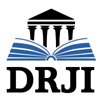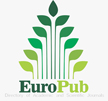ENHANCING ONLINE PRACTICAL COURSES IN MECHANICAL ENGINEERING: DEVELOPMENT AND ANALYSIS OF INNOVATIVE METHODS
Abstract
Keywords
Full Text:
PDFReferences
Alam, F., Dilla, E., Subic, A., & Tu, J. (2007). A three step teaching and learning method in laboratory experiments for a thermal fluid course. World Transactions on Engineering and Technology Education, 6(1), 13-16.
Attardi, S. M., Barbeau, M. L., & Rogers, K. A. (2018). Improving online interactions: lessons from an online anatomy course with a laboratory for undergraduate students. Anatomical Sciences Education, 11(6), 592-604.
Aydin, S. (2011). Effect of cooperative learning and traditional methods on students' achievements and identifications of laboratory equipments in science-technology laboratory course. Educational Research and Reviews, 6(9), 636-644.
Balduf, M. (2009). Underachievement among college students. Journal of advanced academics, 20(2), 274-294.
Biswas, S., Dahan, O., Solomonov, E., Waksman, I., & Braun Benyamin, O. (2021). Advancing global health through engineering: a perspective on teaching an online global health course to engineers during a global pandemic. BioMedical Engineering Online, 20(1), 1-12.
Charosky, G., Hassi, L., Papageorgiou, K., & Bragós, R. (2022). Developing innovation competences in engineering students: a comparison of two approaches. European Journal of Engineering Education, 47(2), 353-372.
Chick, R. C., Clifton, G. T., Peace, K. M., Propper, B. W., Hale, D. F., Alseidi, A. A., & Vreeland, T. J. (2020). Using technology to maintain the education of residents during the covid-19 pandemic. Journal of Surgical Education, 77(4), 729-732.
Craifaleanu, A., & Craifaleanu, I.-G. (2022). A co-creation experiment for virtual laboratories of mechanics in engineering education. Computer Applications in Engineering Education, 30(4), 991-1008.
Eri, R., Gudimetla, P., Star, S., Rowlands, J., Girgla, A., To, L., & Bindal, U. (2021). Digital resilience in higher education in response to covid-19 pandemic: Student perceptions from Asia and Australia. Journal of University Teaching and Learning Practice, 18(5), 1-28.
Etxebarria, A., Garay, U., & Romero, A. (2012). Implementation of social strategies in language learning by means of moodle. Journal of Language Teaching & Research, 3(2), 273-282.
Faria, G., Peres, M. F., Neto, O. M. da S., & Silva, C. A. G. da. (2020). An educational didactic machine to improve the learning process of motor protection mechanisms in electrical engineering high education. IEEE Revista Iberoamericana de Tecnologias Del Aprendizaje, 15(4), 253-261.
Fishman, B., Konstantopoulos, S., Kubitskey, B. W., Vath, R., Park, G., Johnson, H., et al. (2013). Comparing the impact of online and face-to-face professional development in the context of curriculum implementation. Journal of teacher education, 64(5), 426-438.
Gamage, K. A., Wijesuriya, D. I., Ekanayake, S. Y., Rennie, A. E., Lambert, C. G., & Gunawardhana, N. (2020). Online delivery of teaching and laboratory practices: Continuity of university programmes during covid-19 pandemic. Education Sciences, 10(10), 1-9.
Gudyanga, R., & Jita, L. C. (2019). Teachers' implementation of laboratory practicals in the South African physical sciences curriculum. Issues in Educational Research, 29(3), 715-731.
Hernández-de-Menéndez, M., Vallejo Guevara, A., & Morales-Menendez, R. (2019). Virtual reality laboratories: a review of experiences. International Journal on Interactive Design and Manufacturing (IJIDeM), 13(1), 947-966.
Horton, J. J., Rand, D. G., & Zeckhauser, R. J. (2011). The online laboratory: Conducting experiments in a real labor market. Experimental economics, 14(1), 399-425.
Huijben, J. C., Van den Beemt, A., Wieczorek, A. J., & Van Marion, M. H. (2022). Networked learning to educate future energy transition professionals: results from a case study. European Journal of Engineering Education, 47(3), 446-466.
Koretsky, M. D., McColley, C. J., Gugel, J. L., & Ekstedt, T. W. (2022). Aligning classroom assessment with engineering practice: A design‐based research study of a two‐stage exam with authentic assessment. Journal of Engineering Education, 111(1), 185-213.
Lawlor, R. (2021). Teaching engineering ethics: a dissenting voice. Australasian Journal of Engineering Education, 26(1), 38-46.
Lee, D., Watson, S. L., & Watson, W. R. (2019). Systematic literature review on self-regulated learning in massive open online courses. Australasian Journal of Educational Technology, 35(1), 28-41.
Low, M. C., Lee, C. K., Sidhu, M. S., Lim, S. P., Hasan, Z., & Lim, S. C. (2021). Blended learning to enhanced engineering education using flipped classroom approach: An overview. Electronic Journal of Computer Science and Information Technology, 7(1), 9-19.
Lyons, J. S., & Brader, J. S. (2004). Using the learning cycle to develop freshmen’s abilities to design and conduct experiments. International Journal of Mechanical Engineering Education, 32(2), 126-134.
Mäkiö, E., Azmat, F., Ahmad, B., Harrison, R., & Colombo, A. W. (2022). T-chat educational framework for teaching cyber-physical system engineering. European Journal of Engineering Education, 47(4), 606-635.
Martin, K., Cupples, A., & Taherzadeh, S. (2020). Learning advanced engineering online: from distance delivery to online learning of finite element analysis. European Journal of Engineering Education, 45(3), 457-472.
Miner, S., & Stefaniak, J. E. (2018). Learning via video in higher education: an exploration of instructor and student perceptions. Journal of University Teaching and Learning Practice, 15(2), 1-18.
Moreno-Moreno, P., Yanez-Marquez, C., & Moreno-Franco, O. A. (2009). The new informatics technologies in education debate. International Journal of Technology Enhanced Learning, 1(4), 327-341.
Pertiwi, D. R., & Kusumaningrum, M. A. D. (2021). Project-based learning for mechanical engineering students in the emergency remote teaching. Jo-ELT (Journal of English Language Teaching) Fakultas Pendidikan Bahasa & Seni Prodi Pendidikan Bahasa Inggris IKIP, 8(2), 152-162.
Pi, Z., Yang, J., Hu, W., & Hong, J. (2022). The relation between openness and creativity is moderated by attention to peers’ ideas in electronic brainstorming. Interactive Learning Environments, 30(2), 344-352.
Sarker, M. F. H., Mahmud, R. Al, Islam, M. S., & Islam, M. K. (2019). Use of e-learning at higher educational institutions in Bangladesh. Journal of Applied Research in Higher Education, 11(2), 210-223.
Turcsányi-Szabó, M. (2012). Aiming at sustainable innovation in teacher education from theory to practice. Informatics in Education-An International Journal, 11(1), 115-130.
Turhan, C., Akman, I., & Hacaloglu, T. (2022). Online collaborative tool usage for review meetings in software engineering courses. Interactive Learning Environments, 30(2), 202-214.
Watkins, J., Portsmore, M., & Swanson, R. D. (2021). Shifts in elementary teachers’ pedagogical reasoning: Studying teacher learning in an online graduate program in engineering education. Journal of Engineering Education, 110(1), 252-271.
Yang, X. (2021). An approach of project-based learning: bridging the gap between academia and industry needs in teaching integrated circuit design course. IEEE Transactions on Education, 64(4), 337-344.
Yu, K.-C., Wu, P.-H., & Fan, S.-C. (2020). Structural relationships among high school students’ scientific knowledge, critical thinking, engineering design process, and design product. International Journal of Science and Mathematics Education, 18(6), 1001-1022.
DOI: https://doi.org/10.17509/jmee.v10i1.57725
Refbacks
- There are currently no refbacks.
Copyright (c) 2023 UNIVERSITAS PENDIDIKAN INDONESIA

This work is licensed under a Creative Commons Attribution-ShareAlike 4.0 International License.
Indexed by:
ISSN: P 2356-4997
View My Stats
 Journal of Mechanical Engineering Education (Jurnal Pendidikan Teknik Mesin)
Journal of Mechanical Engineering Education (Jurnal Pendidikan Teknik Mesin)








